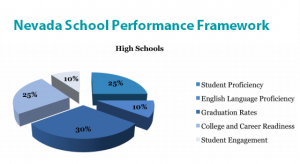Education Week last month reported that “as state legislative sessions forge ahead, you’ll start to see states’ Every Student Succeeds Act (ESSA) accountability plans vetted by lawmakers as the new law requires.” This is partly a result of statutory requirements in the law that mandate consultation with the governor and members of the state legislature. But it is also due to the fact that many state ESSA plans promise changes to assessments, accountability and standards that must be made by the legislature or state board of education.
With the first submission window for ESSA state plans now officially open, implementation of the new federal law has been top of mind for many states. As they finalize their ESSA plans, state policymakers have been working in parallel to implement core strategies within their education systems.
Kentucky Plans to Measure Industry Credential Attainment
In Kentucky, for example, Governor Matt Bevin signed a revised state accountability system into law. While Kentucky has been recognized as a leader in career readiness accountability — the state’s Unbridled Learning system uses a weighted point system that values college and career achievement equally — SB1 applies a fresh coat of paint, aligning the system with ESSA requirements and recalibrating the weighted point system to better incentivize relevant career learning experiences. Namely, the law:
- Adopts a “Postsecondary Readiness” indicator measuring apprenticeship participation and achievement of industry-recognized credentials in addition to college credit, performance on college admissions exams and concurrent enrollment.
- Directs the Kentucky Workforce Innovation Board and the Department of Education to annually produce a list of industry-recognized credentials eligible for credit under the accountability system. Credentials are to be identified by local workforce investment boards and weighted according to industry demand.
- Eliminates inclusion of the WorkKeys career readiness assessment in the accountability system.
Arkansas Provides Accountability Guidelines for Department of Education
Meanwhile, Arkansas lawmakers passed — and Governor Asa Hutchinson signed — a law authorizing the Department of Education to develop a state accountability system and providing certain guidelines. The law largely mirrors the requirements set forth in ESSA, which requires state to report indicators related to academic performance, growth, graduation rates and English Learner progress. But lawmakers also provided nine suggested indicators for the Department of Education to consider, including one measure of the percent of students earning Advanced Placement credit, concurrent credit, International Baccalaureate credit or industry-recognized credentials.
If the Arkansas Department of Education chooses to pursue this route, it will join several other states that are considering career readiness indicators in their statewide accountability systems. As we shared last week, about half of states planning to submit ESSA plans during the first review window are considering career readiness indicators, including measures of industry credential attainment.
Other CTE-Related Legislation Hitting Governors’ Desks this Session
ESSA-related legislation is inching along in other state houses nationwide. In the meantime, state lawmakers have kept themselves busy, continuing a years-long trend to strengthen and scale relevant career pathways. Though this list is not exhaustive, here is a snapshot of what states have passed so far in the 2017 legislative session:
- Idaho and Utah saw increases in state-appropriated funding for CTE.
- Two bills passed in Virginia will allow school districts to waive certain CTE teacher licensure requirements and require community colleges to accept credit for state-approved apprenticeships.
- Arkansas’ new Future Grant program repurposes $8.2 million to cover two years of tuition and fees for Arkansas students to study at a state technical or community college, provided that their course of study is in a high-demand field and they elect to work in the state for three years after graduating.
- South Dakota voted to reorganize the state technical college system under the authority of a new Board of Technical Education, following through on a ballot mandate approved by voters in November.
Austin Estes, Policy Associate


 Eighteen states
Eighteen states  Chairman Todd Rokita (R-IN) in his
Chairman Todd Rokita (R-IN) in his  After a contentious confirmation hearing and an unprecedented vote requiring Vice President Mike Pence to break a Senate tie, Betsy DeVos was confirmed as President Donald Trump’s Secretary of Education on February 7. In her first weeks on the job, Secretary DeVos
After a contentious confirmation hearing and an unprecedented vote requiring Vice President Mike Pence to break a Senate tie, Betsy DeVos was confirmed as President Donald Trump’s Secretary of Education on February 7. In her first weeks on the job, Secretary DeVos 